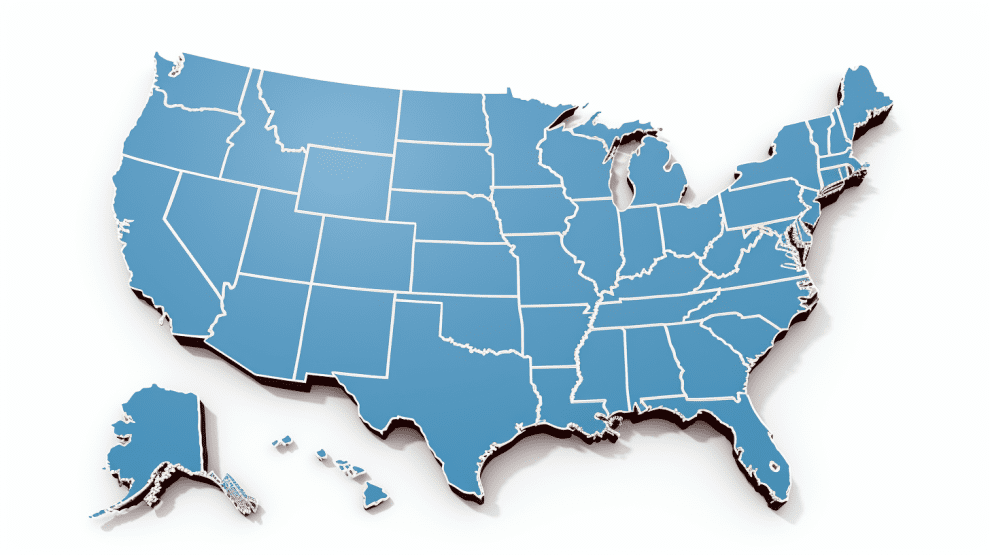Best Places to Go Off Grid
The world is full of incredible destinations that allow people to escape the hustle and bustle of daily life and reconnect with nature. Going off-grid allows me to experience the serenity of remote locations while embracing a simpler lifestyle. With so many options available, it can be difficult to decide where to go when seeking these destinations that provide a perfect balance between seclusion and adventure.
I’ve done some research and explored various locations that offer off-grid experiences that cater to different preferences. Some travelers might be looking for complete solitude in the wilderness, while others might desire a location that offers sustainable living and a strong, supportive community. No matter the preference, there are numerous destinations around the world that provide the perfect setting for going off-grid and immersing oneself in the wonders of nature.
In the following sections, I’ll share some of the best off-grid destinations I’ve come across, from remote mountain lodges in Alaska to eco-friendly communities in the United States. Each of these locations offers unique opportunities for reconnecting with nature, developing self-reliance, and embracing a more sustainable way of living.
Best States for Off-Grid Living
New Mexico
In my opinion, New Mexico is a great state for off-grid living due to its favorable climate and affordable land prices. The state has abundant sunshine, which is perfect for solar energy generation, and relatively mild winters. Additionally, New Mexico has no state income tax on Social Security, which can benefit retirees looking to live off the grid. The state’s laws are friendly to off-grid living, with water catchment systems and greywater recycling being legal. However, it is essential to research local zoning regulations before purchasing land.
North Dakota
North Dakota is another excellent option for off-grid living, as land prices are relatively low, and the state has a rapidly growing economy. The state has wide-open spaces and fertile soil, making it suitable for gardening and agriculture. State income tax rates in North Dakota are also comparatively low. Although the climate can be harsh during the winter months, proper planning and insulation can make off-grid living comfortable. It’s important to note that water rights can be a challenge, so researching state laws and regulations is crucial before deciding to live off the grid in North Dakota.
New York
While it may seem surprising, certain rural areas in New York are suitable for off-grid living. Upstate New York has vast wooded areas, suitable for building self-sufficient homesteads and growing food. The state has ample water resources and relatively friendly laws for off-grid living. However, it’s essential to be aware of New York’s high state income tax rates and potential property taxes when considering this state for off-grid living.
New Jersey
New Jersey provides some opportunities for off-grid living, mainly in rural areas. The Garden State has a temperate climate with mild winters and longer growing seasons, providing an excellent environment for farming and gardening. However, New Jersey has high state income tax rates and property taxes, which could make off-grid living more financially challenging. Thorough research of local zoning regulations is necessary when considering this state for off-grid living.
Puerto Rico
Puerto Rico, a U.S. territory, offers a unique off-grid living experience due to its tropical climate and diverse geography. Rainwater harvesting is legal, and renewable energy sources like solar and wind power can be highly effective due to the island’s climate. While there is no federal income tax in Puerto Rico, it is essential to consider other local taxes that might apply. The island’s infrastructure and access to resources can be limited, so it’s crucial to plan accordingly when considering off-grid living in Puerto Rico.
Ideal Locations
As someone who’s researched off-grid living, I’ve discovered that the ideal off-grid locations often fall into three main categories: Rural Areas, Small Towns, and Off-Grid Communities. In this section, I will briefly discuss the benefits and features of each type of location to help you determine which option might be the best fit for your off-grid lifestyle.
Rural Areas
For many, the perfect place to go off-grid is in a secluded, rural area. Living in a rural setting provides access to vast natural resources, such as water sources, forests for fuel and building materials, and fertile land for farming or gardening. Additionally, rural areas often have lower population densities, which gives you more privacy and a greater sense of autonomy. It’s worth mentioning that Tennessee and Arkansas are among the top states for off-grid living in rural areas, thanks to their affordable land prices, rich natural resources, and pleasant climates.
Small Towns
Small towns can also be ideal places for off-grid living. While they still provide a sense of community, the slower pace of life can offer a refreshing change from bustling city lifestyles. Small towns typically have lower costs of living, relaxed zoning laws, and more access to essential services like healthcare and emergency assistance if needed. Some small towns, like those in Collier County, Florida, even boast access to nearby farmer’s markets, making it easier to maintain a sustainable lifestyle.
Off-Grid Communities
Finally, off-grid communities can be an excellent option for those looking to live amongst like-minded individuals. These communities are specifically designed for off-grid living, with shared resources and a collective focus on sustainability and self-reliance. By joining an off-grid community, you’ll have access to an established support system, making the transition to off-grid living more manageable. There are various off-grid communities throughout the world, with some popular locations being highlighted by Lonely Planet, such as the mountains of Lesotho and remote areas of Alaska.
By considering the benefits and features of rural areas, small towns, and off-grid communities, you can make an informed decision about the best location for your off-grid lifestyle. Just remember to thoroughly research the specific areas you are interested in to ensure they align with your needs and goals.
Land and Building Considerations
When looking for the best places to go off-grid, there are several factors to consider regarding land and building. In this section, I will discuss land prices and building codes, as these are essential aspects to examine when choosing the perfect off-grid location.
Land Prices
In order to establish an off-grid lifestyle, it’s crucial to find land with affordable prices. One reason for this is that I’ll need to set aside additional funds for constructing a home, setting up renewable energy sources, and developing any necessary infrastructure for water and waste. States like Tennessee and West Virginia typically offer lower land prices, allowing for a more feasible transition to an off-grid lifestyle.
Some factors influencing land prices include:
- Location: Rural areas tend to have lower prices compared to urban or suburban areas
- Terrain: Flat land is generally cheaper than hilly or mountainous regions
- Accessibility: Land with easy access to roads and infrastructure is usually more expensive
Building Codes
Building codes are a significant consideration when choosing a location for an off-grid home, as they dictate the specific requirements and regulations for constructing and maintaining a property. Some states and municipalities have more lenient building codes, which allows for greater flexibility in designing and constructing a sustainable off-grid dwelling.
For example, places like Oregon and Missouri have more relaxed regulations, making them attractive options for off-grid enthusiasts. On the other hand, stricter codes may limit the types of renewable energy systems that can be installed or require permits for various aspects of off-grid living.
It’s crucial to research a potential off-grid location’s building codes, as they affect:
- Structural design requirements
- Renewable energy system permits and regulations
- Waste management and water treatment options
- Potential modifications and additions to the property in the future
While land prices and building codes are just two aspects to consider when selecting an off-grid location, they play a significant role in determining the feasibility and desirability of a particular place. By taking the time to research and understand these factors, I can make a well-informed decision on where to create my sustainable and self-sufficient off-grid home.
Energy Resources
As someone living off the grid, having access to reliable and sustainable energy resources is essential. In this section, I’ll discuss two popular renewable energy options: solar power and wind power.
Solar Power
In my experience, solar power is one of the most common and effective ways to generate electricity when living off-grid. With the help of solar panels, I can harness the power of the sun to create electricity for my home and appliances. Solar energy is not only a clean and renewable source of power but also a relatively low-maintenance option once the panels are installed.
There are three main types of off-grid solar systems that I’ve found to cater to most people’s energy needs:
- Solar-only systems: These systems rely exclusively on solar panels for power generation. They’re suitable for areas with abundant sunshine throughout the year.
- Solar with battery backup: This setup allows storing excess solar energy in batteries for use during nighttime or cloudy days.
- Hybrid solar systems: In this configuration, solar power is combined with another energy source such as wind power or a generator. It provides additional energy security, especially in locations with varying weather conditions.
Wind Power
Another great option for renewable off-grid energy is wind power. By installing wind turbines, I can harness the force of the wind to generate electricity for my off-grid lifestyle. Wind power is a viable option in areas with consistently strong winds, and it’s a suitable complement to solar energy.
Wind turbines come in various sizes and designs, but small-scale turbines are typically more suitable for off-grid living. When considering wind power, I need to take into account factors such as wind speed, consistency, and location (I won’t install a turbine too close to my home).
In conclusion, both solar and wind power offer reliable and sustainable energy options for off-grid living. By carefully considering the unique characteristics and energy needs of my off-grid home, I can determine which type of renewable energy resource or a combination of the two is the best fit for my situation.
Water and Food Resources
Water Source
Finding a reliable water source is crucial for off-grid living. Ideally, I’d want to choose a location with access to fresh water, like a river, stream, or natural spring. In some states, such as Oregon, there are several major off-grid communities with access to water resources.
However, I must also consider water rights, as each state has different regulations regarding the use of water resources. For example, in arid states like Arizona, water rights can be complex and costly, so I might need to explore alternative solutions like installing a well or utilizing rainwater harvesting methods.
Growing and Raising Food
To maintain a sustainable off-grid lifestyle, I’ll need to grow my own food and possibly raise livestock. Some of the best states to consider for this purpose include Missouri, Tennessee, and West Virginia, where land prices are affordable, and the soil is fertile enough to support agriculture.
Before selecting a plot of land for my off-grid home, I’d first check the region’s climate and growing season. Longer growing seasons, like those found in Georgia or Hawaii, are typically more suitable for growing and harvesting a variety of crops.
When considering raising livestock, I have to note that different animals require varying degrees of care and resources. Chickens and rabbits, for example, are low-maintenance and can provide eggs and meat. Larger animals, like goats and cows, might need more space and additional resources like hay and supplemental feed.
By addressing water and food resources in my off-grid location, I can ensure a sustainable and self-sufficient lifestyle, ultimately leading to a more fulfilling and rewarding off-grid experience.
Climate and Environment
Temperate Climate
In my opinion, finding a location with a temperate climate is crucial for off-grid living. A mild climate offers several benefits, such as a comfortable living environment and lower heating and cooling expenses. Tennessee, for instance, could be an ideal choice if you appreciate all four seasons of the year, as it boasts a moderate climate and rich natural resources. Similarly, parts of the Pacific Northwest like Oregon and Washington may be suitable if you don’t mind a bit more rain.
Another region to consider is the center of North America—spanning from Tennessee to Nevada, and southern Wyoming to northern Texas. In the coming years, an increase in average temperature is predicted due to climate change. According to projections, this area will experience a temperature increase of six degrees by around mid-century, which may impact energy consumption and adaptability to off-grid living.
Natural Disasters
When selecting the perfect off-grid location, it’s essential to consider the risk of natural disasters. Some areas may be more prone to events such as floods, hurricanes, or earthquakes, which can significantly impact your off-grid life and safety. For instance, coastal regions might be at higher risk for hurricanes, while areas situated on tectonic plate borders face a higher earthquake likelihood.
It’s wise to assess the historical data and trends related to natural disasters in a potential off-grid location, as this will allow you to prepare and implement necessary precautions. Depending on the region, comprehensive consideration of various factors such as average temperature, climate change, and natural disaster risks is crucial for a successful and sustainable off-grid life.
Cost of Living and Safety
Low Cost of Living
When looking for the best places to go off-grid, it’s essential to consider the cost of living. I found that some states offer a significantly lower cost of living compared to the national average. For example, states like Mississippi, Arkansas, and Oklahoma are known for their low living expenses. This affordability makes them attractive destinations for off-grid living, particularly if you’re building a tiny house, which has an average national cost of about $45,000.
Being in a location with a low cost of living also allows me to allocate more resources to my off-grid setup, such as solar panels, water storage, or gardening equipment, making the whole transition more feasible.
Safety and Crime Rates
Apart from the cost of living, it’s important for me to consider the safety and crime rates in the area where I plan to live off-grid. Some states, like Louisiana, are known for their low crime rates, making them attractive options for those seeking a more secure environment.
However, I would need to keep in mind that crime rates may vary within individual regions and towns. So, it’s best to research local safety statistics before choosing a specific location within a state.
It’s important for me to find a balance between cost of living, safety, and other factors when selecting an ideal location for off-grid living. By focusing on areas with low crime rates and affordable living costs, I can set myself up for success in my journey towards a more independent and sustainable lifestyle.
Accessible Services and Conveniences
Modern Conveniences
In my search for the best off-grid locations, I found it essential to consider the availability of modern conveniences. While the goal is to live a more self-sufficient and independent lifestyle, it is still important to have access to amenities like grocery stores, healthcare facilities, and clean water sources. In many rural areas, especially in states like Louisiana, these necessities are still within reach, while the population density remains low enough to maintain privacy and space.
Social Media
When it comes to social media, the availability of internet services varies greatly depending on the off-grid location. I discovered that living off the grid doesn’t mean completely cutting off from the digital world. In some remote areas, satellite internet or cellular data coverage can still be an option, but it may not be as reliable or fast as in urban environments. However, being able to occasionally connect with friends and family or access essential information can be a valuable resource.
Phone Service
Similar to social media, phone service plays a critical role in staying connected to the outside world, especially during emergencies. In my investigation, I found that some off-grid destinations may not have the most reliable cellular service, but landline options or satellite phones can provide an alternative. Ensuring easy access to communication is an important factor to consider when choosing the ideal off-grid home.
Overall, striking a balance between self-sufficiency and accessible services is a key part of living off the grid. Understanding the availability of modern conveniences, social media, and phone service in a given location can help make the off-grid lifestyle more sustainable and enjoyable.
Notable Destinations
Natural Wonders
When it comes to finding the best places to go off-grid, I’ve discovered that some of the most ideal locations can be found within North America’s vast national parks, state parks, and national forests. These protected areas offer natural wonders and beautiful landscapes that make for a perfect setting to disconnect from modern life and reconnect with nature.
One great place that I found for an off-grid homestead is the Hoh Rainforest in Washington. Located within the long stretches of Olympic National Park, this lush, green paradise provides the perfect backdrop for experiencing solitude and serenity. Another great state with abundant off-grid locations is Alaska, where you can find the pristine Wrangell Mountains, offering extreme isolation and stunning views in the heart of the wilderness. In the continental United States, Boundary Waters Canoe Area Wilderness in Minnesota is another ideal off-grid destination, with its vast network of lakes and waterways providing the perfect setting for canoeing, fishing, and backcountry camping.
Off-Grid Guidelines
As I ventured into these off-grid destinations, I quickly learned the importance of following some key guidelines to ensure a safe and enjoyable experience. First and foremost, I made sure to always respect the natural environment and adhere to the principles of Leave No Trace. This means:
- Planning ahead by researching my destination, its regulations, and acquiring the necessary permits.
- Disposing of waste properly by carrying out all of my trash and using biodegradable soaps to minimize my impact on the environment.
- Minimizing campfire impact by using a camp stove for cooking and only making fires in designated fire rings or pans.
Aside from these essential guidelines, I also found it crucial to be prepared for the specific conditions and potential hazards in the area where I was going off-grid. For example, if I were planning to head to an off-grid destination in a national forest, I would ensure that I had a basic understanding of wilderness navigation, first aid, and emergency procedures. Additionally, it’s essential to let someone know my travel plans and to have a reliable means of communication in case of emergency.
By following these guidelines and selecting the right location, I found that going off-grid can be a truly rewarding and transformative experience, providing the chance to escape modern distractions and immerse oneself in the beauty of nature. Whether it’s in the dense rainforests of the Pacific Northwest or the rugged mountains of Alaska, North America is home to some truly great off-grid destinations for those seeking solitude and serenity.
Frequently Asked Questions
Where can I find a suitable climate for off-grid living?
In my experience, a suitable climate for off-grid living can vary depending on personal preferences. Some people may prefer the tropics, while others might like a more temperate climate. I recommend MindsetEco’s guide on living off the grid as a helpful resource to identify the best places to consider for off-grid living based on climate.
What are some good locations for living off the land for free?
It is not easy for me to find places to live off the land for free. Nonetheless, I have come across some off-the-grid destinations that are remote and provide a sense of solitude and freedom. These destinations can offer a chance to disconnect from modern life while reconnecting with nature. However, to be honest, entirely free living off the land can be rare and challenging.
What are the cons of living off-grid in certain states?
In my research, I have found that living off-grid in specific states or regions can come with challenges such as strict regulations, zoning issues, high costs of land, and limited access to resources. SimplyOffGrid’s article on the best states for off-grid living provides insights on some of the top states and the challenges you might face in each location.
How can I live off the grid with limited financial resources?
I have discovered that living off the grid on a limited budget is possible with careful planning and resourcefulness. Some tips I can share include looking for affordable land, prioritizing essential needs, learning DIY skills, and choosing renewable energy sources like solar panels. Going off-grid with solar panels is an excellent way to decrease energy costs and achieve self-sufficiency.
In which countries can I best live off the land?
While I cannot pinpoint a single “best” country for living off the land, I have noticed that several countries offer favorable conditions for off-grid living. Some examples include Canada, New Zealand, and Costa Rica. Each country will present its own set of rules, regulations, and available resources, so it’s important for me to research your options thoroughly.
Which U.S. states have regulations that support off-grid living?
In my exploration, I noted that some U.S. states have more accommodating regulations that support off-grid living, like Arizona, Alaska, and Idaho. These states often have lax zoning laws, affordable land, and favorable climates for off-grid lifestyles. Remember to consult SimplyOffGrid’s ranking for more comprehensive information on top off-grid states and their supporting regulations.








